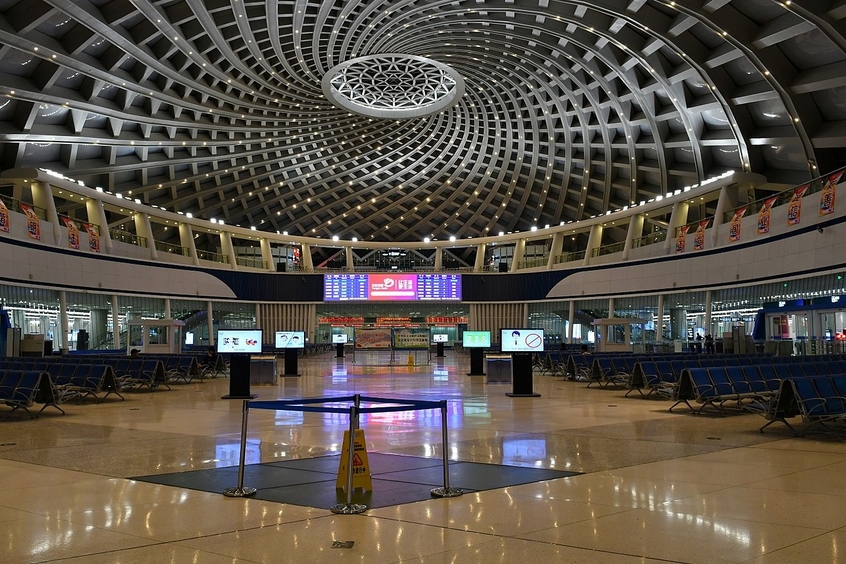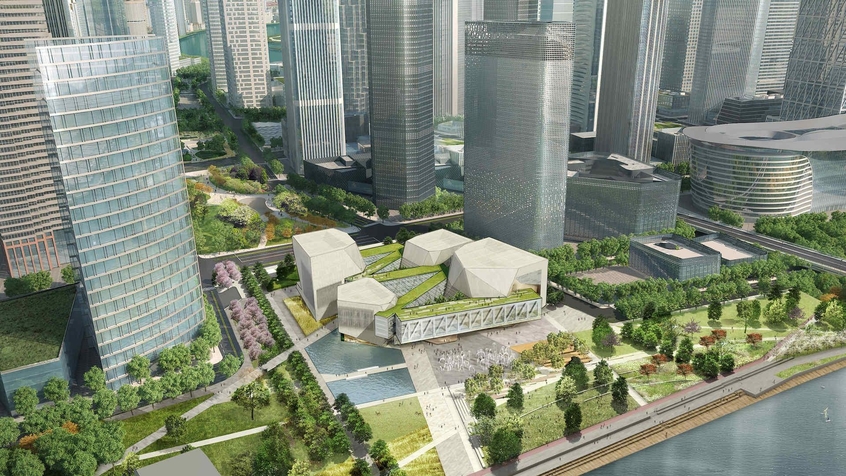A new business hub bristling with empty towers at Tianjin, China has been called a “monument to the breakdown of the Chinese growth model”, and should serve as a warning to indebted local governments, an article in The New York Times said this week.
Begun in 2006 on marshland (according to South China Morning Post), the Yujiapu Pilot Free Trade Zone was billed as China’s answer to Manhattan.
It has its own high-speed rail station and broad boulevards, but four-fifths of its office space are unoccupied, and construction on new buildings has stopped, leaving “skeletons in the sky”, report Alexandra Stevenson and Cao Li for the newspaper.Â
A vast shopping mall has few shoppers while, inside, a pet store has no pets, they said. They were told that new office tenants are offered a year rent free, and other perks.

Inside Yujiapu railway station, October 2017 (Tyg728/CC BY-SA 4.0)
They suggested Yujiapu marks the limits of China’s erstwhile successful development strategy of borrowing large sums to build and relying on galloping economic growth to cover the debt.
With businesses yet to flock to Yujiapu, total debt among Tianjin’s government, corporations and households is now $760bn, according to an estimate by research organisation, Rhodium Group.
Rhodium further proposed that the annual interest owed by all Tianjin borrowers was 12 times greater than the municipality’s annual nominal economic growth.
The backdrop is China’s slowing economic growth. Its economy grew 6.6% last year, the slowest annual expansion since 1990.
One construction project still underway at Yujiapu is the first overseas campus of New York’s famous Juilliard School of music, with the Tianjin government reported to be subsidising the capital cost of the project.
Ground broke in June 2017, and it is intended to open this year.

Artist’s render of the Tianjin Juilliard School of music, scheduled for opening in 2019 (Image courtesy of Tianjin Juilliard School)
There are hopes the Tianjin Juilliard School will help attract more people to Yujiapu.
A Tianjin real estate consultant, Michael Hart, told the reporters that a resurgence of growth could rejuvenate the Yujiapu vision.
“It’s like going to see a five-act play and you’re halfway through Act 1 and calling it a lousy play,” he said.
Wary of local government debt, China’s central government has taken steps to curb rampant development, putting the brakes on a theme park building craze last year, and, also last year, clamping down on mass transit systems municipalities can ill afford.
Top image: Yujiapu Railway Station, October 2015 (Amazingloong/CC BY-SA 4.0)
See also:






